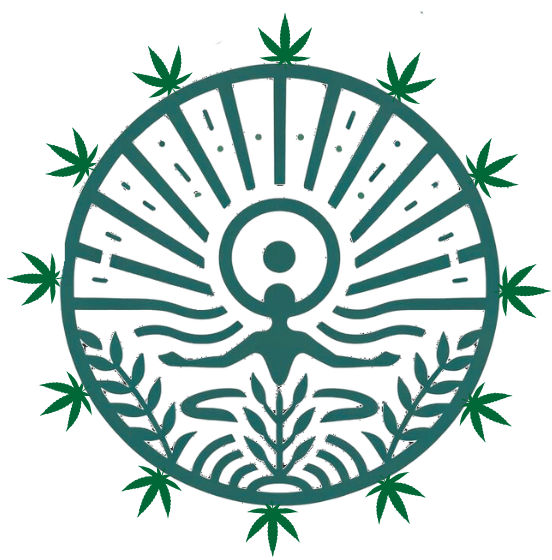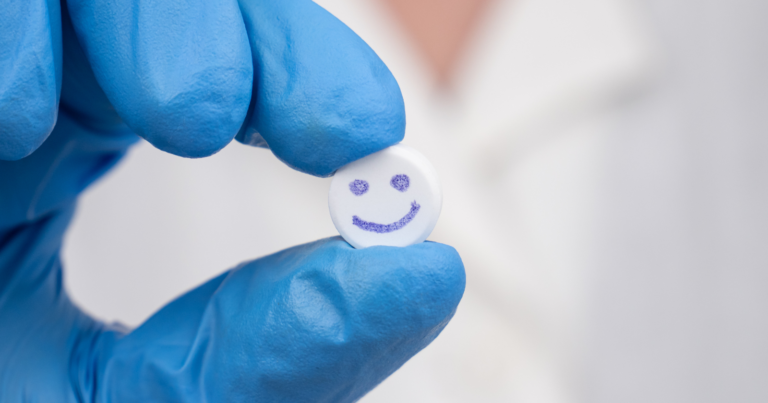As we stand at the precipice of a medical revolution, psychedelics are changing the game for mental health treatment.
These powerful substances, including psilocybin and MDMA, are showing big promise for tough conditions like depression and PTSD.
Mental health professionals claim that these substances aren’t just helping symptoms. In fact, they’re offering a new way to heal deeply.
Science is starting to back up what many have hoped for, bringing new treatments closer to those in need.
Let’s delve into the transformative power of psychedelics in mental health care and explore how they’re reshaping our approach to healing.
Historical context of psychedelics in therapy
Believe it or not, psychedelics had a place in therapy long before the effectiveness of psychedelics was recognized.
In the mid-20th century, researchers and therapists began to explore the potential of substances like LSD to treat various mental health conditions.
In, fact, over 6 decades after Bill Wilson, co-founder of Alcoholics Anonymous, first touted the benefits of LSD for recovery, modern science is catching up.
This period marked the first wave of interest, showing promising results in understanding the mind and offering relief for conditions previously thought untreatable.
However, the growing counterculture movement of the 1960s, associated with recreational drug use and political dissent, led to a widespread ban on psychedelics.
This shift wasn’t just legal — it pushed these substances into the shadows, halting research and leaving many potential therapies unexplored.
Despite this setback, the intrigue around psychedelics never completely vanished.
A few dedicated scientists and mental health professionals kept the flame alive, working under tight restrictions to understand how these substances could benefit the mind.
Their perseverance set the stage for a resurgence in psychedelic research, known as the psychedelic renaissance, which we’re witnessing today.
What does the research say about using psilocybin in treatment?
The therapeutic potential of these once-stigmatized substances is now being explored for a range of disorders including depression, PTSD, addiction, and anxiety.
Studies, including those by Johns Hopkins University, have shown that psilocybin therapy can significantly reduce depression and anxiety in various patient groups.
For instance, patients with life-threatening cancer diagnoses may experience substantial relief from psychological distress, with improvements lasting several months post-treatment.
Other research indicates psilocybin’s effectiveness in treating depression, with some patients describing their experience as a mental ‘reset.’
Unlike traditional therapies, psychedelic-assisted treatments offer quick, effective relief often after just a single dose, challenging the status quo of long-term medication regimes.
Jamie Peters, PhD, emphasizes the burgeoning interest in this field as a “renaissance,” highlighting the significant, yet under-researched potential of psychedelics to fundamentally alter brain function and structure for therapeutic benefit.
According to Peters, these substances act on serotonin receptors to enhance sensory input and promote neural plasticity—allowing for new pathways in the brain that can overcome the impacts of mental health disorders.
In her work with non-hallucinogenic variants of psychedelics, Peters points to promising animal model studies that suggest the therapeutic benefits of psychedelics might not necessarily require the hallucinogenic experience often associated with these drugs.
This could potentially expand their use in outpatient settings, making treatment more accessible.
5 benefits of psychedelics for your mental health
Based on the studies above, I’d like to break down some specific benefits of psilocybin and other psychedelic drugs for your mental health:
1) Alleviates symptoms of depression
The first benefit of psychedelic healing that I find most remarkable is its potential to alleviate symptoms of depression.
As I mentioned above, psychedelic therapy has shown promise in helping individuals suffering from severe depression, where traditional treatments may have failed.
Depression is often characterized by feelings of hopelessness and despair, which can leave individuals feeling disconnected and isolated.
Psychedelic healing, however, aims to break this cycle. It works by inducing a profound psychological experience that promotes introspection and self-awareness.
These therapies, such as psilocybin-assisted therapy, have demonstrated the capacity to create a shift in mindset, cultivating a sense of interconnectedness and positivity.
As for me, the possibility of transforming lives through such a unique modality continues to intrigue and inspire.
This therapy doesn’t merely manage symptoms – it opens the door to a deeper understanding of the self and paves the way for lasting mental health improvement.
2) Eases anxiety and stress
The second powerful benefit of psychedelic healing lies in its potential to relieve anxiety and stress.
Psychedelic therapy, particularly with substances like psilocybin and MDMA, has demonstrated effectiveness in reducing anxiety levels.
For many individuals, anxiety and stress can feel like an insurmountable hurdle, hindering their daily life and overall wellness.
But what if there was a way to not just cope but actually alleviate these unsettling feelings?
This is where psychedelic healing comes into play.
It fosters a deep psychological experience that can lead to significant reductions in anxiety and stress levels.
Rather than just managing symptoms, this therapy strives to shift the individual’s perspective, fostering a sense of peace and acceptance.
Could you imagine the profound impact of such an experience on someone’s life?
3) Promotes emotional healing
Have you ever felt stuck in your emotional pain, as if there’s a wound that just won’t heal?
Another profound benefit of psychedelic healing lies in its potential to facilitate emotional healing.
This therapy can provide a safe space for you to confront and process difficult emotions, something which is often challenging in our everyday lives.
During a psychedelic therapy session, individuals often report experiencing a heightened state of emotional awareness and empathy. This can enable them to face their emotional distress head-on and start healing.
Therefore, psychedelic healing doesn’t simply offer a temporary solution.
Instead, it provides an avenue for sustained emotional healing, helping individuals to let go of their emotional burdens and move forward with newfound resilience and strength.
Let’s be honest: emotional health is a critical aspect of our overall well-being.
And through psychedelic healing, you have the opportunity to heal emotionally, enhancing your quality of life in the process.
4) Enhances creativity and openness
An often overlooked, yet equally compelling, benefit of psychedelic healing is its ability to enhance creativity and openness.
In fact, psychedelics can help individuals tap into a wellspring of creativity and imagination that can bring about a renewed sense of wonder and curiosity.
This heightened state of consciousness can promote:
- Improved problem-solving abilities
- Greater appreciation for art and music
- Increased empathy and understanding
What’s more, these experiences can foster an attitude of openness toward new ideas, perspectives, and experiences.
This sense of openness can be instrumental in promoting personal growth and broadening one’s horizons.
So, psychedelic healing isn’t just about healing the mind – it also opens the door to a more creative, open, and enriched existence.
5) Helps with addiction recovery
Finally, let’s delve into another key benefit of psychedelic healing – its potential to aid in addiction recovery.
Substance addiction is a complex issue that affects millions worldwide. Conventional treatments can often fall short, leading to relapses and a cycle of addiction.
But what if there’s a different way?
This is where psychedelic healing can play a game-changing role.
As studies prove, psychedelic therapies like psilocybin-assisted treatment have shown promise in helping individuals overcome substance addiction.
The therapy promotes introspection and self-awareness, enabling individuals to confront their addiction at its roots.
Moreover, the profound psychological experience often leads to a shift in mindset, helping individuals to let go of their dependence and embrace recovery.
We’re not talking about a quick fix here.
Rather, it’s about providing sustainable support for those striving to overcome addiction and reclaim control over their lives.
Potential risks and misconceptions
While the benefits of psychedelic healing are significant, it’s crucial to also understand the potential risks and misconceptions associated with this form of therapy.
Firstly, not everyone is a suitable candidate for psychedelic healing. Individuals with certain medical conditions or a history of psychosis may be advised against this form of therapy due to potential risks.
Another misconception is that the substances used in psychedelic healing can be used recreationally for the same benefits.
This is not the case.
The therapeutic benefits of these substances are closely tied to the controlled environment, professional guidance, and therapeutic intention involved in a formal healing session.
It’s also important to note that while psychedelic healing can offer profound benefits, it is not a quick fix.
The therapy involves deep emotional work and can bring up difficult emotions and memories. This process requires proper aftercare and ongoing support to ensure positive long-term outcomes.
Future of psychedelic healing
The future of psychedelic healing for mental health holds immense potential.
Ongoing research continues to uncover the vast benefits and applications of this form of therapy.
As the scientific community gains a better understanding of how these substances work within the brain, the efficacy of this approach will only improve.
Currently, the use of psychedelics in therapy is being researched for a broader range of mental health conditions, including obsessive-compulsive disorder (OCD), eating disorders, and certain personality disorders.
The hope is to extend the benefits of this treatment to as many individuals as possible.
Furthermore, advancements in technology are leading to better ways of measuring and understanding the impact of psychedelic substances on the brain.
This could lead to more personalized treatments and improved outcomes for individuals undergoing psychedelic healing.
Finally, as societal attitudes towards mental health and therapeutic substances evolve, it is likely that we will see an increase in the acceptance and use of psychedelic healing.
This shift could make this revolutionary form of therapy more accessible to those who need it.












